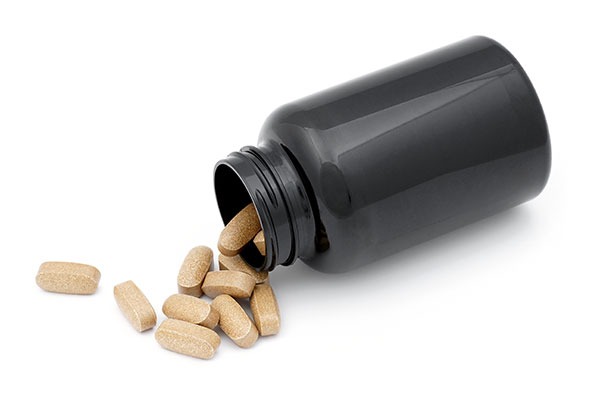 Athletes are often curious about dietary supplements that allege to boost testosterone levels. Some testosterone-boosting (T-boost) supplements also claim to be “all-natural” and the Supplement Facts label only lists permitted substances, making the product seem safe. The advertising around such products often positions them as natural, legal, and effective ways to boost testosterone for an edge in sport, which means that athletes might unfortunately be persuaded to believe that they are safe and won’t cause an anti-doping rule violation.
Athletes are often curious about dietary supplements that allege to boost testosterone levels. Some testosterone-boosting (T-boost) supplements also claim to be “all-natural” and the Supplement Facts label only lists permitted substances, making the product seem safe. The advertising around such products often positions them as natural, legal, and effective ways to boost testosterone for an edge in sport, which means that athletes might unfortunately be persuaded to believe that they are safe and won’t cause an anti-doping rule violation.
There are several reasons why this is a highly risky approach for athletes:
-
1. Similar Biological Effects
Testosterone and any other substance listed under the Anabolic Agents section of the World Anti-Doping Agency (WADA) Prohibited List are prohibited at all times, including “other substances with a similar chemical structure or similar biological effect(s).” This catch-all allows for the possibility that there are many synthetic derivatives of anabolic steroids that have anabolic and androgenic actions on the body, thus all are prohibited in sport even if not specifically named on the Prohibited List. WADA and USADA are always monitoring for the appearance of new doping substances.
If an ingredient causes an increase in testosterone levels, then it would have similar biological effects on the body as listed Anabolic Agents and would therefore be prohibited. While many T-boost products contain ingredients that have not been proven to affect testosterone levels in any way, if it turns out that one of the ingredients actually does or has the potential to increase testosterone, and meets at least two of the three Prohibited List inclusion criteria, then WADA may consider it prohibited even if that particular ingredient is not specifically named on the Prohibited List. -
2. False Promises
Athletes should realize that many dietary supplements make claims that are not supported by credible scientific data. Two recent studies have demonstrated that herbal and “all natural” T-boost products typically don’t deliver on their claims. In one study, the researchers found many of the ingredients in popular T-boost supplements had never been studied in relation to testosterone levels, and some of the ingredients had in fact been shown to decrease testosterone levels. In another study, researchers discovered that the top five T-boost products on Amazon were highly ranked due to fake reviews. When the fake reviews were eliminated, most the remaining legitimate reviews did not mention anything about increased testosterone levels, energy, or improved strength or performance.
There is a good chance that athletes are wasting time and money on testosterone-boosting supplements. -
3. Contamination
Even if a supplement does not contain an ingredient included on the WADA Prohibited List, there could still be contamination and/or adulteration issues with the product, which could cause a positive test and/or adverse health effects.
Takeaway
If a dietary supplement “works” and increases testosterone levels, then it’s prohibited. If it doesn’t work, then it’s a waste of time and money. In some cases, dietary supplements might make claims of performance enhancement that are explicit enough to count as an intended use of a prohibited substance, which could also result in an anti-doping rule violation. For these reasons, USADA advises athletes to avoid all products that make performance-enhancing claims and to only use supplements that are certified under the NSF Certified for Sport program.
If an athlete isn’t performing at their best, there may also be ways to optimize their health and performance through nutrition, recovery, training, and psychological and medical improvements. The TrueSport Nutrition Guide and Supplement Guide are resources that can help athletes cleanly and safely reach peak performance.
More questions?
For questions about specific products, substances, and methods, contact USADA’s Drug Reference Line at drugreference@usada.org or call (719) 785-2000, option 2.
References
Clemesha, C. G., Thaker, H., & Samplaski, M. K. (2020). ‘Testosterone Boosting’ Supplements Composition and Claims Are not Supported by the Academic Literature. The world journal of men’s health, 38(1), 115–122. doi:10.5534/wjmh.190043 https://www.ncbi.nlm.nih.gov/pubmed/31385468
Testosterone Imposters: An Analysis of Popular Online Testosterone Boosting Supplements. Balasubramanian, Adithya et al. The Journal of Sexual Medicine, Volume 16, Issue 2, 203 – 212
https://www.jsm.jsexmed.org/article/S1743-6095(18)31382-1/fulltext



